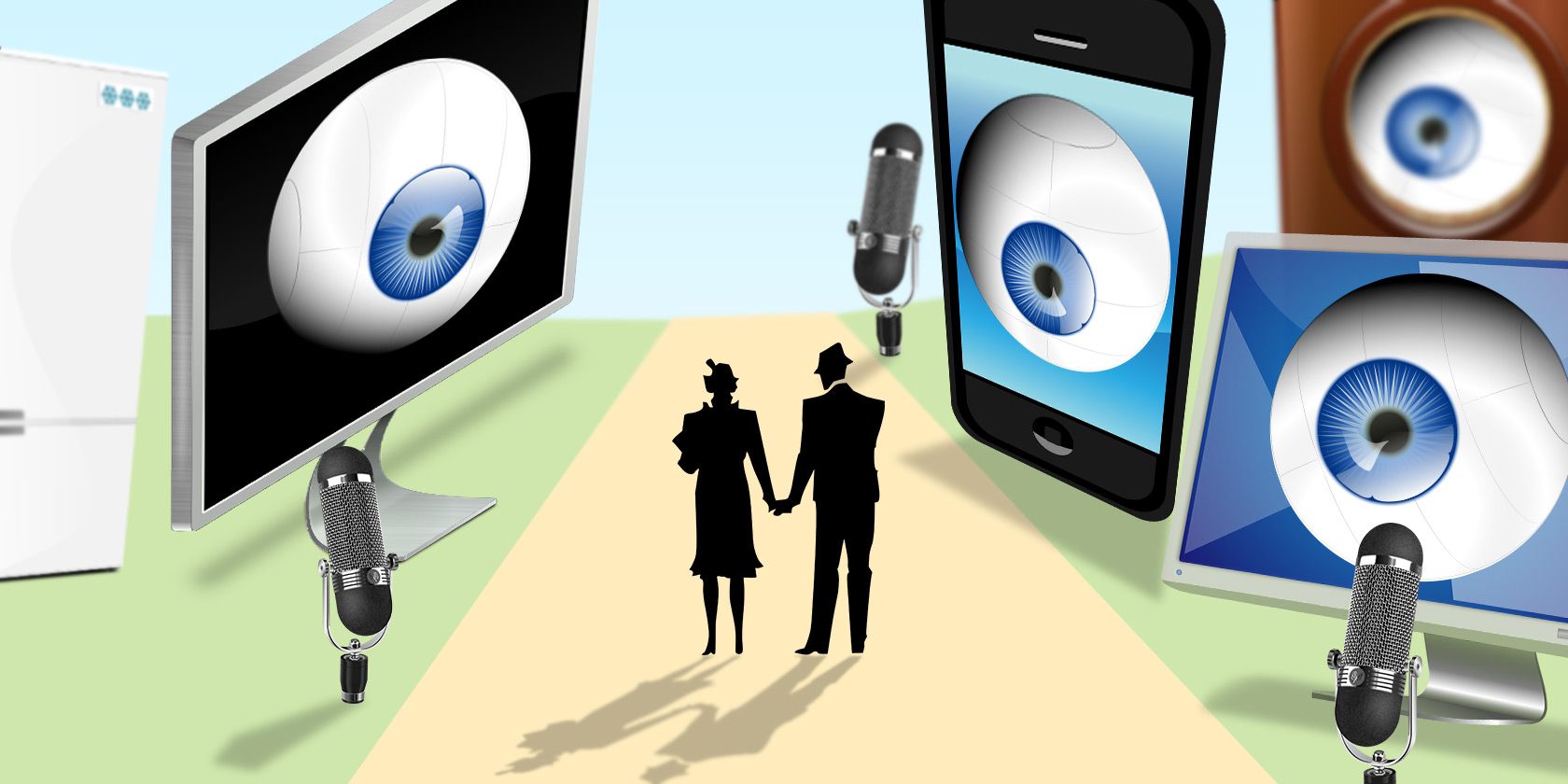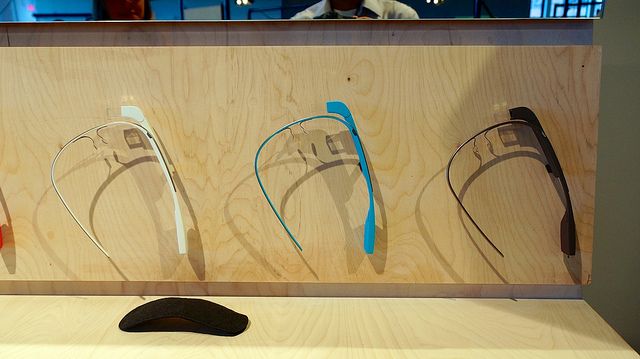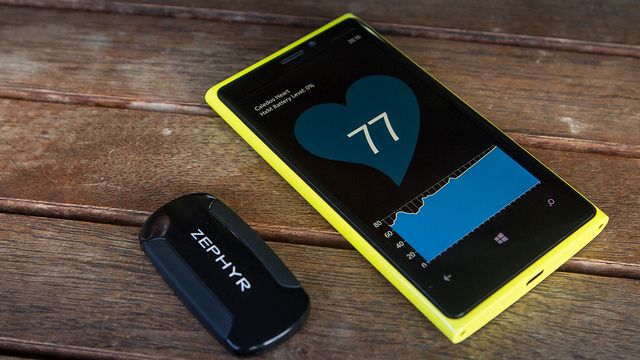Have you ever wondered about much machine intelligence is impacting your life today? If not, don't be surprised: if "ambient intelligence" is done right, you really shouldn't have a clue - that's the point.
Ambient Intelligence (stylized as AmI) is a new way of thinking about human-computer interactions, characterized by embedded devices, wearables, and passive adaptation of technology to your needs. The goal of AmI is for technology to maximize its usefulness while minimizing its footprint on your attention. In other words, AmI tries to be invisible, pulling data from the environment to make intelligent, helpful decisions for you, without you ever having to ask.
This new paradigm is obviously powerful, but it also comes with its own risks and challenges. As the devices in your world come to know your life in more detail, they also come to know your life in more detail. You might appreciate it if your technology automatically responds to an intimate moment by lowering the lights and changing the music, but you may be uncomfortable with the idea of a large corporation like Google knowing the when and where of your love life.
http://youtu.be/69H1ZKGsD3k?t=1m
What Ambient Intelligence Can Do
AmI is the intersection of two important trends. The first is the so-called "Internet of things" - networked devices like Wifi-enabled lightbulbs, Internet radios, smart homes, smart appliances, and wearable technology that make it easy to present data to the user in a variety of ways.
The second is big data analytics and increasingly powerful artificial intelligence tools, which can absorb the flood of data from all of those sensors and devices and turn it into useful insight that can be used to drive helpful behavior without human intervention.
Imagine, for example, buying wifi-enabled speakers that you can place around house that handshake with smartphones via bluetooth, and pick playlists according what it predicts will be liked by every person in the room. Imagine a smart thermostat and light controller that has a statistical model of your behavior at various times and in various situations, and selectively lights and climate controls the house to suit your mood and comfort level, while saving energy.
Imagine a world in which you handle your smartphone less, because it filters out pointless alerts and hands the rest off to wearable devices that alert you without distracting you. Imagine mobile devices and computers that know what you're doing and adapt the UI automatically, depending on context. Your phone should behave differently during a meeting than it does when you're at home and watching Netflix.
Imagine wearable devices that tell you things you want to know before you want to know them, always ready to give you options if you find yourself stuck, frustrated, or simply bored. Is a movie you'll like playing near you? Is an old friend in town for the day? AmI knows, and can leverage that information to your advantage.
It goes beyond that these simple things though. Software is getting a lot smarter. In a couple of years, your phone might give you legal advice in real time, or act as a live-in doctor that knows your medical history and tweaks your restaurant and grocery shopping recommendations to keep you healthy. Or it could detect when you're having a heart or asthma attack and responds intelligently by calling emergency services for you.
These are all useful applications, and clearly the direction that technological trends are headed. We can see the first hints of this with wearable displays like Google glass and smartwatches, and software like Google Now that strives to provide the 'invisible awareness' that characterizes Ambient Intelligence applications - bringing you information it thinks you might want before you ask for it. That said, there are some risks to this technology.
The Cost of Ambient Intelligence
Ambient intelligence is a privacy nightmare. The more useful the software is, the worse the compromise to your privacy. Even with the relatively impoverished data currently available to companies that engage in demographic targeting, they can still deduce a worrying amount about you.
In one notable incident, a man complained to Target that the store's website was advertising maternity clothes and materials to his teenage daughter - and was eventually forced to apologize when it turned out that the store was correct. The pregnancy had been deduced simply from a change in purchasing patterns, detected by machine learning software designed to do exactly that.
When these sorts of systems have access to your refrigerator, your heart-rate monitor, microphones and cameras on your wearables, and GPS logs from your phone, this issue will only become more prevalent. A future full of ambient intelligence may be a future in which large companies know literally everything about you - a total panopticon. Even for people who don't normally care much about privacy, it's worrying.
The issue is made worse by the other major issue with Ambient Intelligence -- it locks you down to a single ecosystem.
You'll never get a Microsoft lightbulb to talk to your Android phone, or vice versa. If you're very lucky, applications like Spotify will wind up supporting more than one ecosystem, but that's as far as it's likely to go.
AmI very much depends on coordination between large numbers of different data sources, which means that all of this data processing has to happen under one corporate umbrella, and that probably means that everything will be owned by smartphone OS manufacturers, who are best poised to tie large numbers of smart devices together in a coherent fashion.
What this sort of ecosystem lock means is that the market will likely coalesce into partial monopolies, in the same fashion that the OS space has. Less competition means it'll be harder to abandon your current provider for a more anonymous AmI setup. If people really want privacy, market pressures will force someone to offer it, but my suspicion is that people won't actually care as much about privacy as much as they say they do.
The Privacy Apocalypse
As time goes on and this sort of thing becomes more common, maintaining a private public life is going to become more difficult. The rise of augmented reality is going to make it very difficult to step outside or participate in a public social engagement without being recorded on dozens of lifelogging cameras.
Privacy may move from being a constant expectation to being a closely guarded and carefully exercised liberty, engaged in with trusted confidants in non-smart, non-wired spaces or over heavily-encrypted communication channels with everything in incognito mode.
This is not, of itself, necessarily a bad thing. Violent crime will become less common in the future. Memories will be more reliable, and people will be happier and more comfortable -- but social norms will have to adapt.
It will no longer be possible to agree to disagree about the past, or to simply forget about embarrassing incidents (once it's on Youtube, it's on Youtube forever) - there will always be an objective, permanent record. The world will have to learn to forgive and forget, and public behavior will likely have to become more guarded: if the penalties for doing something dumb while drunk are more permanent, people will eventually start to be a lot more careful about being drunk in public.
As far as corporations knowing everything about us, in many ways this is already the case -- Google probably knows more about you than you'd be comfortable with. We may eventually decide, as a society, that we're okay with robots studying our lives in meticulous, statistical detail, and draw the line farther upstream, when individual humans might get the chance to peek at our private doings. Better-targeted advertising may occasionally rise to the level of being legitimately useful.
All of the costs of robot privacy violation by private companies are very abstract anyway, and probably aren't strong enough to overcome the "cool" factor of AmI technology for the common consumer.
AmI is a powerful technological idea, and too useful to be ignored, but it's also a hint at the future that's coming, and that's a scary one. Very old cultural notions of privacy and social interaction are going to have to change quickly, and it's silly to think that there won't be friction. The next decade or two are going to be an uncomfortable process of exploration of the new landscape of social norms, but the end result of all that change may lead to important advantages.
What's your take on ambient intelligence? Will you allow it into your home and your life? Share your thoughts in the comment section below.
Image credits: "Caledos Heartrate Monitor", by Nicola, "Google Glass", by Ted Etan, "PRIVACY", by Michell Zappa




